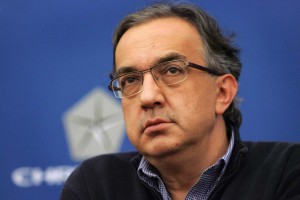It’s difficult enough serving as CEO, especially when you’re overseeing a company desperately struggling to re-emerge from bankruptcy. But Sergio Marchionne is not only running Chrysler but also serving as chief executive of its Italian partner, Fiat. How long that arrangement will continue is unclear, but the Canadian-educated executive says it won’t be indefinitely.
Speaking at the Peterson Institute for International Economics, in Washington, Marchionne said he plans to relinquish one of his posts within the next 24 months.
The executive offered a mix of optimistic and pragmatic observations about Chrysler and the industry as a whole, during his speech and subsequent question-and-answer session, often while making one point. “We walked out of this process (bankruptcy) cleaner “ than before, Marchionne asserted, “like going through a washing machine, but we ended up with the same stuff we had.”
Not surprisingly, Marchionne cautioned that “We are not promising miracles at Chrysler,” even though many observers felt the company over-promised during an all-day briefing, on November 4th outlining the automaker’s turnaround plan. It called for Chrysler to regain much of the market share it has lost, in recent years, and post billions of dollars in profits over the next five years.
Marchionne also declared, last month, that Chrysler would repay the federal government loans that kept the automaker alive. Another goal is to take the company public again.
“We’re working our buns off to try and get done as quickly as possible,” Marchionne said, adding that, “The recovery of this business, and Chrysler in particular, is going to be a gradual process,” and one he noted he is working “24/7” on.
During his appearance at the Peterson Institute, Marchionne had some harsh words for the industry as a whole, which he says has not yet addressed the crippling problem of overcapacity. The Chrysler and General Motors bankruptcies helped deal with the issue in the U.S., but in Europe, “the central problem of overcapacity has not been tackled,” he said, because of a “lack (of) common vision.”
In Germany, the Fiat and Chrysler CEO pointed out, not a single auto assembly plant has been closed since before World War II. Overall, the issue of overcapacity is “destroying” billions of dollars in equity, Marchionne complained.
On the positive side, the executive suggested “Chrysler is now in the enviable position of having to choose how and where and when to increase capacity,” after closing a number of plants as part of its reorganization.
Of course, industry observers caution that Chrysler won’t be able to maintain even those plants it was left with, after its bankruptcy, unless it can launch new products that help it regain sales and market share.

